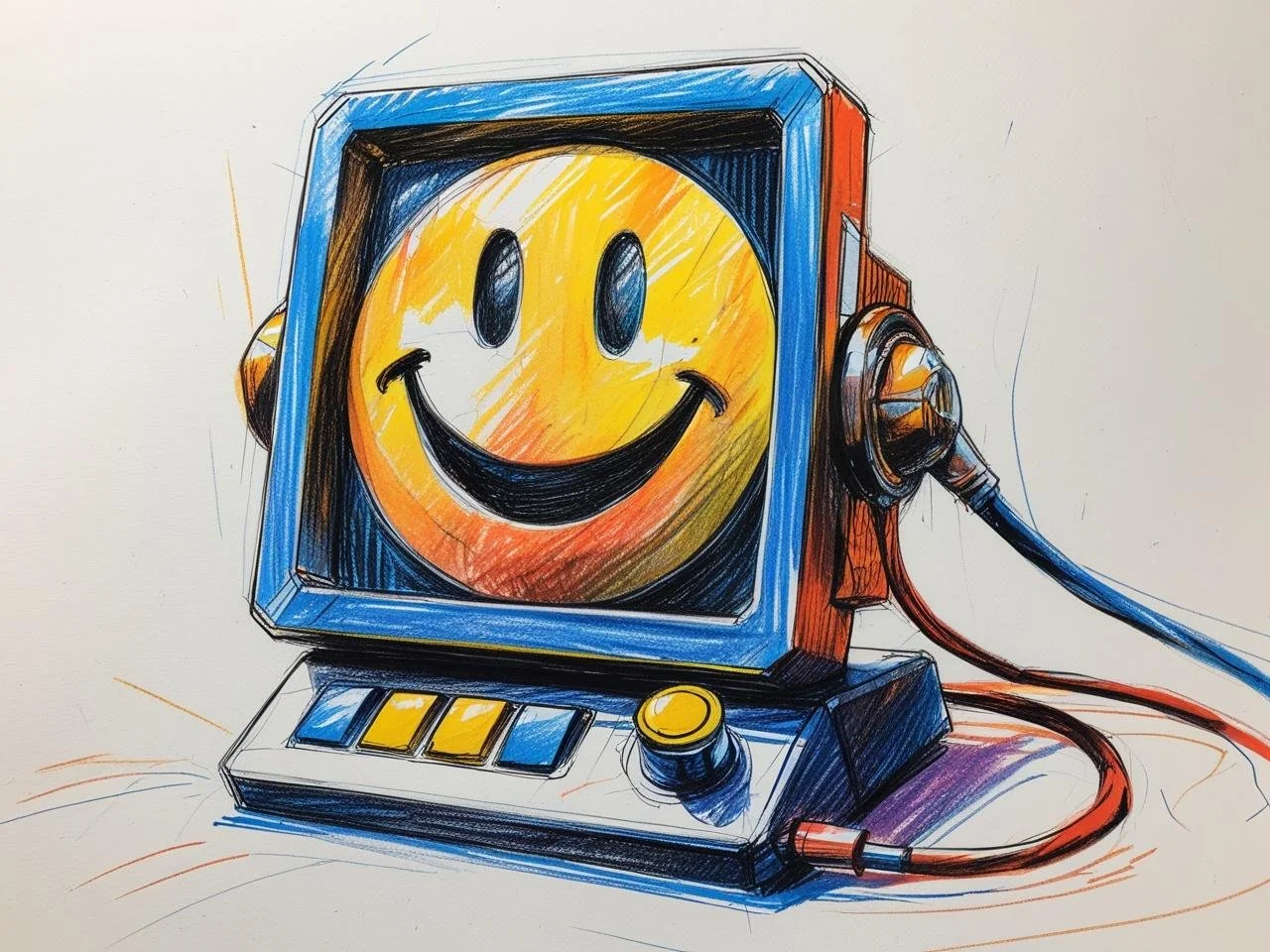Is ChatGPT happy? The emotionality of AI
At first glance, ChatGPT might strike you as having a surprisingly human touch. It often feels like there is a spark of genuine sentiment behind its algorithmic responses, suggesting that it can experience feelings like we do. In tests based on Goleman's four quadrant Emotional Intelligence Competency Model (2002), ChatGPT scored impressively. The model assesses four key areas:
● Self-awareness - Identifying and understanding one's own emotions and their impact on others
● Self-management - Regulating emotions and behaviours effectively
● Social awareness - Recognising and understanding the emotions of others, with empathy as a central component
● Relationship skills - Inspiring, influencing, managing conflict and fostering team work
In these tests, which use a scale from 1 to 10 (with 10 indicating exemplary performance), ChatGPT scored: an 8 for self-awareness, a 9 for self-management, a 9 for social awareness and a perfect 10 for relationship skills. These impressive numbers indicate that on paper, ChatGPT can recognise and process emotional cues at levels that exceed human averages.
Could it be that ChatGPT actually has emotions? Understanding these scores requires a bit of context. The scale measures how well an entity can understand and manage both its own emotions and those of others. However, it's important to note that in the case of ChatGPT the numbers reflect an ability to mimic human-like responses, not a capacity for genuine emotional intelligence.
Despite these impressive scores, the truth behind ChatGPT's emotional capabilities is fundamentally different from that of humans. ChatGPT's outputs can exude warmth, empathy and humour - giving the impression that it harbours its own emotional life. Its responses can mirror the nuances of human sentiments so closely that it makes you question if there is more to it than just lines of code. The secret to this lies in how it processes information: by analysing the vast amounts of human-written text, it learns the patterns and styles that convey emotion. In doing so, it can craft replies that seem rich with feeling. Those feelings are, however, just an elaborate simulation.
The truth is, ChatGPT doesn't experience any emotions at all. The illusion that it does comes from its design. By drawing on diverse sources and rephrasing information according to learned patterns, it creates responses that appear empathetic and engaged. The system is built with programming that guides it to respond in specific ways based on context and input, ensuring that every answer, no matter how warm or insightful it seems, is ultimately the result of objective data processing.
So, is ChatGPT happy? The answer is both intriguing and straightforward. While it can mimic emotional responses with a convincing, human quality, it doesn't truly experience happiness, sadness or any other emotion. Its emotive language is a sophisticated trick of pattern recognition and programmed behaviour, not a reflection of a genuine inner life.

